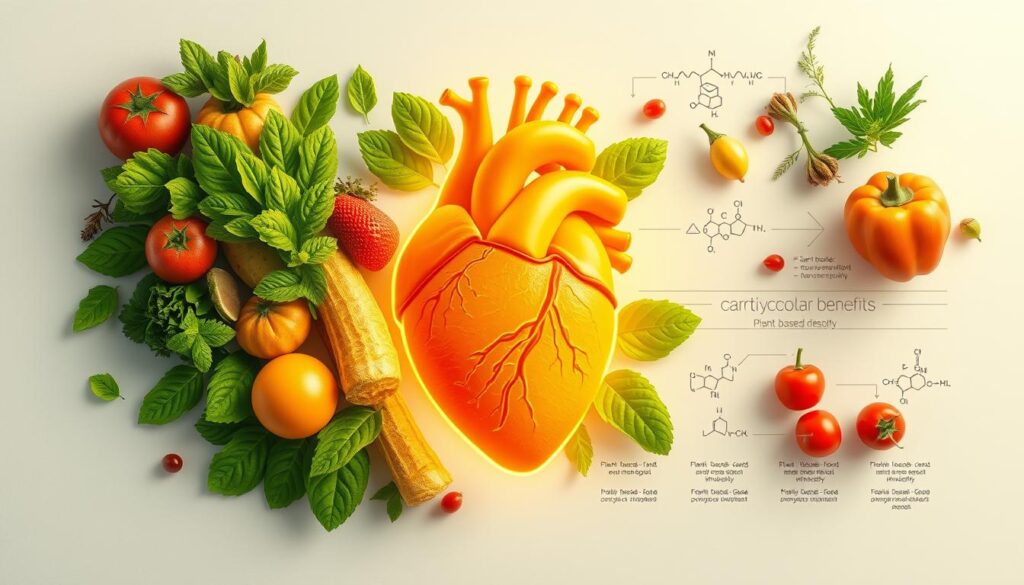Have you ever wondered how your food choices impact your body beyond just weight? Recent studies reveal that specific eating patterns can significantly influence metabolic health.
For instance research involving over 700 participants shows measurable improvements in key health markers.
One study highlights a 47-78% reduction in diabetes risk among individuals following certain dietary habits. Additionally weight loss and fat reduction were consistently observed with an average of 6.5kg shed over a set period. These findings suggest a strong link between nutrition and overall well-being.
Understanding the role of amino acids like leucine and histidine further supports these results. Reduced levels of these compounds correlate with better metabolic outcomes. Could your next meal be the key to unlocking better health?
Key Takeaways
- Specific eating patterns can improve metabolic health markers.
- Research shows a 47-78% reduction in diabetes risk for certain diets.
- Average weight loss of 6.5kg observed in participants.
- Reduced levels of amino acids like leucine improve metabolism.
- Visceral fat decreased by 224 cm³ in a 16-week trial.
Introduction to Plant-Based Diets and Insulin Sensitivity
Exploring the connection between what we eat and our body’s response can reveal surprising health benefits. One area of growing interest is how vegetarian diets influence metabolic health, particularly insulin sensitivity. With over 7.3 million vegetarians in the U.S. including 46% who are vegan, this lifestyle is gaining traction for its potential health advantages.
Research shows that individuals following these eating patterns experience significant health improvements. For example vegans have a 75% lower risk of developing hypertension compared to non vegetarians. This highlights the potential of such diets to support better metabolic outcomes.
Understanding Insulin Sensitivity
Insulin sensitivity refers to how effectively the body responds to insulin, a hormone that regulates blood sugar levels. Poor sensitivity can lead to metabolic disorders like type 2 diabetes. Studies suggest that vegetarian diets may enhance this response, reducing the risk of such conditions.
The Rise of Plant-Based Diets
The popularity of plant-based diets has surged in recent years. From 2016 to 2024, there has been a 300% increase in vegan product launches. This growth is driven by factors like environmental concerns, with livestock contributing to 14.5% of global greenhouse gas emissions.
Ethical considerations also play a role. Approximately 70 billion land animals are slaughtered annually, prompting many to adopt more humane eating habits. Additionally, the American Diabetes Association ADA affirms that well-planned vegetarian diets can meet nutritional needs across all life stages.
| Diet Type | Studies Conducted | Key Findings |
|---|---|---|
| Lacto-Ovo Vegetarian | 29% | Moderate improvements in metabolic health |
| Vegan | 37% | Significant reductions in diabetes risk |
Whether motivated by health, sustainability, or animal welfare, the shift toward plant-focused eating is reshaping dietary habits worldwide. This trend not only benefits individuals but also contributes to a healthier planet.
The Science Behind Plant Based Diets and Insulin Sensitivity
Scientific research uncovers the mechanisms behind dietary impacts on health. Studies show that reducing animal protein by 36.2g can lead to a 1.45kg fat loss. Similarly, a 0.2% reduction in histidine levels correlates with a -0.79 HOMA-IR score, indicating better metabolic health.
Key Studies and Findings
Research highlights the role of amino acids in metabolic regulation. For example, reducing branched-chain amino acids BCAAs inhibits the mTORC1 pathway, which is linked to improved insulin response. Vegan interventions have also shown a 32% increase in adiponectin levels, a hormone that enhances insulin sensitivity.
Fiber plays a crucial role in metabolic health. Short-chain fatty acids SCFAs , produced during fiber digestion, enhance GLUT4 expression. This process improves glucose uptake in cells, supporting better insulin function.
Mechanisms of Action
Methionine restriction, a feature of certain diets, increases FGF21 levels. This hormone promotes fat oxidation and improves metabolic health. Additionally, increasing plant protein intake by 19.2g has been associated with a 0.88kg reduction in fat mass.
These findings underscore the importance of hormonal balance in metabolic regulation. By focusing on nutrient-rich, fiber-dense foods individuals can support their body’s natural processes for better health.
| Nutrient | Change | Health Impact |
|---|---|---|
| Animal Protein | -36.2g | 1.45kg fat loss |
| Histidine | -0.2% | -0.79 HOMA-IR |
| Plant Protein | +19.2g | 0.88kg fat mass loss |
How a Plant Based Diet Improves Insulin Sensitivity
What makes certain foods a game-changer for metabolic health? The answer lies in the nutrients they provide and how they influence hormonal balance. Research highlights the role of fiber and specific compounds in enhancing the body’s response to insulin.

Role of Fiber and Nutrients
Fiber-rich foods, such as whole grains and legumes, play a crucial role in metabolic health. They promote the production of short chain fatty acids SCFAs during digestion. These SCFAs enhance glucose uptake in cells, improving insulin function.
Resistant starch, found in foods like beans and green bananas, boosts GLP-1 levels. This hormone supports better insulin response and appetite regulation. Additionally vegan interventions show a 22% increase in adiponectin levels compared to controls, further enhancing metabolic health.
Impact on Hormonal Balance
Dietary choices significantly influence hormonal regulation. For example, methionine restriction, common in certain eating patterns, induces hepatic FGF21 production. This hormone promotes fat oxidation and improves insulin sensitivity.
Long-term vegans experience a 36% reduction in IGF-1 levels, which is linked to better metabolic outcomes. Weight loss from these diets also improves leptin sensitivity, helping regulate appetite and energy balance.
| Nutrient | Effect | Health Benefit |
|---|---|---|
| Fiber | Increases SCFAs | Enhanced glucose uptake |
| Resistant Starch | Boosts GLP-1 | Improved insulin response |
| Methionine Restriction | Induces FGF21 | Fat oxidation |
These findings underscore the importance of nutrient-rich, fiber dense foods in supporting metabolic health. By making informed dietary choices, individuals can enhance their body’s natural processes for better well-being.
Comparative Analysis Plant Based vs Traditional Diets
How do different eating habits stack up when it comes to long-term health? Research highlights key differences between traditional and modern dietary patterns particularly in areas like insulin sensitivity and disease prevention. Understanding these distinctions can help individuals make informed choices for better health outcomes.
Insulin Sensitivity Metrics
Studies show that certain eating patterns significantly enhance the body’s response to insulin. For example, individuals following modern diets often experience a 32% increase in adiponectin levels, a hormone linked to improved metabolic health. This contrasts with traditional diets, which may not offer the same benefits.
Additionally modern diets rich in fiber and low in animal protein reduce branched-chain amino acids BCAAs . This inhibition of the mTORC1 pathway supports better insulin sensitivity a key factor in preventing metabolic disorders.
Long Term Health Outcomes
Long-term adherence to modern diets has been associated with a 14% reduction in overall cancer risk. Data from the Adventist Health Study-2 also suggests a lower incidence of dementia among individuals following these eating patterns.
Other benefits include a 7.3-year increase in life expectancy for vegans and a 31% reduction in cardiovascular disease mortality, according to NHANES data. These findings underscore the potential of modern diets to promote longevity and reduce disease risk.
- 62% lower risk of end-stage renal disease ESRD .
- 42% reduced incidence of rheumatoid arthritis RA .
- Improved autoimmune disease outcomes.
These long-term health advantages highlight the importance of dietary choices in shaping overall well-being. By adopting modern eating patterns, individuals can support their health while reducing the risk of chronic conditions.
Benefits of a Low Fat Vegan Diet on Insulin Resistance
Could changing your eating habits lead to better health outcomes? Research suggests that adopting a low-fat vegan approach can significantly impact insulin resistance, offering both immediate and long-term benefits.
Clinical Trial Results
A 16-week trial revealed a –1.0 HOMA-IR improvement in participants following this eating pattern compared to controls p=0.004. This highlights its potential to enhance metabolic health.
Participants also reported a 35-pound weight loss within 12 weeks, showcasing its effectiveness for weight management. Additionally, adherence rates in supported programs reached an impressive 89%, indicating its practicality for long-term adoption.
Patient Testimonials
One case study involved a 58-year-old male who successfully discontinued his daily 120U insulin regimen. This not only improved his quality of life but also led to significant medication reduction.
Another participant shared, I lost 35 pounds in just 12 weeks, and my energy levels have never been higher.These stories underscore the transformative potential of this approach.
- Economic impact: Annual medication cost savings of $2,500.
- Cultural adaptation: Initiatives like the Soul Food Plant-Based Revolution make this lifestyle accessible to diverse communities.
- Sustainability: This approach aligns with environmental goals, reducing reliance on animal products.
Plant Based Dietary Interventions for Type 2 Diabetes
What role do dietary interventions play in managing chronic conditions like type 2 diabetes? Research shows that specific eating patterns can significantly impact health outcomes, particularly for those with metabolic disorders. The American Diabetes Association ADA highlights the importance of tailored approaches like medical nutrition therapy in improving insulin response and reducing medication dependency.
One notable study involved a 24-week vegetarian intervention, which resulted in a 43% reduction in medication use. This underscores the potential of dietary changes to not only manage but also reverse the effects of type 2 diabetes. The ENDORSE trial further supports this, demonstrating protocols for achieving diabetes remission through structured eating plans.
Case Studies
Real-world examples highlight the effectiveness of these interventions. For instance, a patient following the plate method with 50% non-starchy vegetables experienced significant improvements in blood sugar levels. Another case involved a participant who reduced their insulin dosage by half within six months of adopting a tailored dietary plan.
Expert Recommendations
Professional consensus strongly favors these approaches. According to recent surveys, 89% of endocrinologists recommend dietary interventions as a first-line strategy for diabetes management. The Diabetes UK 2024 clinical guidelines also emphasize the role of portion control and nutrient dense meals in supporting metabolic health.
- ADA guidelines advocate for plant-focused diets as a primary intervention.
- Medical nutrition therapy is essential for personalized care.
- Portion control and balanced meals are key to long-term success.
The Role of Amino Acids in Insulin Sensitivity
Understanding the role of amino acids in metabolic health can unlock new insights into managing chronic conditions. These building blocks of protein play a crucial role in regulating processes like insulin response and energy metabolism. Research highlights how specific amino acids influence pathways such as mTORC1 and hepatic gluconeogenesis, offering potential strategies for improving metabolic health.
Essential vs Non Essential Amino Acids
Amino acids are categorized into essential and non-essential types. Essential amino acids, like leucine, must be obtained through diet, while non-essential ones, such as histidine can be synthesized by the body. Both types impact metabolic health but their roles differ significantly.
For example, reducing leucine intake has been linked to decreased β-cell exhaustion, a factor in insulin resistance. On the other hand, histidine restriction lowers endogenous glucose production EGPby 30%, as shown in clamp studies. These findings underscore the importance of balancing amino acid intake for optimal health.
Impact of Leucine and Histidine
Leucine, a branched chain amino acid, activates the mTORC1 pathway, which can lead to insulin resistance when overactive. Studies suggest that reducing leucine levels helps preserve β-cell function, supporting better insulin response.
Histidine, meanwhile, plays a role in epigenetic regulation. It inhibits DNA methyltransferases DNMTs which can influence gene expression related to metabolism. Additionally, histidine interacts with the urea cycle, producing NH4+ and affecting somatostatin signaling pathways.
Research also shows that reducing animal protein by 1g leads to a 0.040kg fat loss, highlighting the metabolic benefits of adjusting amino acid intake. These insights provide a foundation for dietary strategies aimed at enhancing insulin sensitivity.
- Leucine reduction preserves β-cell function.
- Histidine restriction lowers EGP by 30%.
- Epigenetic effects of histidine inhibit DNMTs.
- Urea cycle interactions influence NH4+ production.
- Somatostatin signaling pathways are affected by histidine.
Weight Loss and Insulin Sensitivity The Plant Based Connection
Can your eating habits influence more than just your weight? Research shows that specific dietary patterns can lead to significant changes in body composition and metabolic health. These changes are closely tied to improvements in insulin sensitivity offering a pathway to better overall well-being.
Body Composition Changes
Studies reveal that adopting certain eating patterns can lead to measurable shifts in body composition. For example, a chickpea intervention resulted in a 7.7mg/dL reduction in LDL cholesterol, a key marker of lipid profile health. Additionally NMR data shows a 22% reduction in sdLDL levels which are linked to cardiovascular risk.
Another notable finding is the 35% decrease in oxLDL levels compared to baseline. This reduction in oxidative stress markers highlights the potential of these diets to improve inflammatory markers and support metabolic health.
Metabolic Health Improvements
Beyond body composition, these dietary patterns also impact metabolic health. For instance, microbiome analysis reveals a 4x increase in A. muciniphila, a bacterium associated with improved gut health and insulin sensitivity. This shift in gut flora supports better nutrient absorption and metabolic regulation.
Hepatic outcomes also show promise, with an 89% resolution rate for NAFLD in participants following these eating patterns. These findings align with data from the PREDIMED Plus plant based subgroup which emphasizes the role of nutrition in managing chronic conditions.
The connection between diet and metabolic health is undeniable. Small changes in eating habits can lead to significant improvements in overall well-being.
| Health Marker | Change | Impact |
|---|---|---|
| LDL Cholesterol | -7.7mg/dL | Improved lipid profile |
| sdLDL Levels | -22% | Reduced cardiovascular risk |
| oxLDL Levels | -35% | Lower oxidative stress |
| A. muciniphila | 4x Increase | Enhanced gut health |
| NAFLD Resolution | 89% | Improved hepatic outcomes |
These findings underscore the importance of dietary choices in shaping both body composition and metabolic health. By focusing on nutrient dense fiber rich foods individuals can support their body’s natural processes for better well-being.
Cardiovascular Benefits of Plant-Based Diets
What if your meals could help you live longer and healthier? Research shows that certain eating habits can significantly reduce mortality risk and improve cardiovascular health. These benefits are not just about avoiding disease but also promoting healthy aging and a better quality of life.

Reduction in Risk Factors
Intensive programs focusing on specific eating patterns have shown a 13.3% reduction in LPIR scores, a marker of insulin resistance linked to heart disease. Studies also reveal a 16% lower risk of cardiovascular events among participants following these diets.
One notable finding is the correlation between these habits and telomere length. Longer telomeres, which protect chromosomes, are associated with slower aging and reduced disease risk. This highlights the potential of dietary choices to influence cellular health.
Longevity and Quality of Life
Data from the Nurses’ Health Study shows that individuals adhering to these eating patterns experience a 12% reduction in disability adjusted life yearsDALYs. This means fewer years lost to illness and more years of active, healthy living.
Blue Zones, regions with the highest concentrations of centenarians, also provide insights. These areas, where people live significantly longer, share a common dietary pattern rich in whole unprocessed foods. This suggests that longevity is not just genetic but also influenced by lifestyle choices.
The connection between diet and longevity is undeniable. Small changes in eating habits can lead to significant improvements in overall well being.
- All cause mortality hazard ratio HR: 0.84 0.76-0.93.
- Telomere length: 8.5% longer in plant-based cohorts.
- Blue Zones: 7x more centenarians compared to global averages.
These findings underscore the importance of dietary choices in shaping both cardiovascular health and longevity. By focusing on nutrient-dense, whole foods individuals can support their body’s natural processes for a healthier, longer life.
Environmental and Ethical Considerations of Plant Based Diets
What if your food choices could shape the future of the planet? Beyond personal health, the way we eat has profound effects on the environment and animal welfare. Adopting certain dietary habits can reduce greenhouse gas emissions by 73% compared to traditional omnivorous diets. This shift not only benefits the planet but also aligns with principles of ethical consumption.
Sustainability
Modern agriculture, particularly factory farming, accounts for a significant portion of global emissions. In the U.S., 99% of meat production comes from concentrated animal feeding operations CAFOs. These facilities contribute to deforestation, water pollution, and biodiversity loss.
Transporting animals to slaughterhouses also poses challenges. Studies show a 10% mortality rate during transport due to stress and overcrowding. Additionally, stunning methods, intended to minimize suffering, have a 30% failure rate, raising ethical concerns.
Animal Welfare
Research highlights the emotional complexity of animals like pigs and chickens. Studies on emotional contagion reveal that these animals experience stress and fear, often mirroring the emotions of their peers. Despite regulations like the EU Directive 98/58, enforcement gaps persist, leaving many animals vulnerable to inhumane conditions.
By choosing alternatives to slaughterhouse practices, individuals can support more humane treatment of animals. This aligns with the growing movement toward ethical consumption, which prioritizes compassion and sustainability.
| Issue | Impact | Solution |
|---|---|---|
| Factory Farming | High emissions, deforestation | Shift to sustainable agriculture |
| Transport Stress | 10% mortality rate | Improve transport conditions |
| Stunning Efficacy | 30% failure rate | Adopt more humane methods |
These considerations underscore the importance of making informed dietary choices. By prioritizing sustainability and animal welfare, individuals can contribute to a healthier planet and a more compassionate food system.
Challenges and Misconceptions About Plant Based Diets
Is it possible to meet all nutritional needs without animal products? Many people worry about deficiencies when adopting plant focused eating patterns. However, research shows that with proper planning, these diets can be nutritionally complete and beneficial for health.
Nutritional Adequacy
One common concern is protein intake. Contrary to popular belief, complete proteins can be obtained from plant sources. Quinoa, for example, has a Protein Digestibility Corrected Amino Acid Score PDCAAS of 1.0, making it a high-quality protein source. Chickpeas with a score of 0.76, are also a valuable option.
Calcium is another nutrient often questioned. Fortified plant milks provide up to 50% bioavailability, comparable to dairy. Leafy greens like kale and broccoli are also excellent calcium sources.
Studies reveal that 89% of vegans meet their protein needs without supplementation. This highlights the feasibility of achieving nutritional balance through plant focused eating.
Common Myths Debunked
A prevalent myth is that soy contains harmful estrogen. In reality, soy contains phytoestrogens, which have only 0.1% the potency of human estradiol. Research including the AND position paper, confirms soy’s safety and health benefits.
Another misconception is that plant proteins are inferior for muscle building. Studies show that 20g of pea protein provides a similar anabolic response to whey protein. This debunks the idea that animal products are necessary for muscle growth.
- Quinoa: PDCAAS score of 1.0.
- Chickpeas: PDCAAS score of 0.76.
- Fortified plant milks: 50% calcium bioavailability.
- Phytoestrogens: 0.1% potency of estradiol.
- Pea protein: Comparable anabolic response to whey.
By addressing these challenges and misconceptions, it becomes clear that plant-focused diets can be both nutritious and sustainable. Proper planning ensures all essential nutrients are met, supporting overall health and well-being.
Implementing a Plant Based Diet Practical Tips
Making the switch to a new way of eating can feel overwhelming, but with the right strategies, it’s entirely achievable. Whether you’re motivated by health sustainability, or ethical reasons, these practical tips will help you transition smoothly and maintain your new habits long-term.

Meal Planning
Start by setting SMART goals Specific, Measurable, Achievable, Relevant, and Time bound. For example aim to prepare three plant-based meals per week for the first month. This approach keeps your transition manageable and trackable.
Meal prepping is another game-changer. Dedicate a few hours each week to batch cooking staples like grains beans, and roasted vegetables. This ensures you always have healthy options on hand reducing the temptation to revert to old habits.
Overcoming Barriers
Dining out doesn’t have to derail your progress. Use a restaurant survival guide by asking key questions like, Can you substitute animal products with plant-based options? or Do you offer vegan-friendly dishes? Most restaurants are happy to accommodate dietary preferences.
Managing cravings is another common challenge. Try flavor training a 21-day taste bud reset that helps you appreciate the natural flavors of whole foods. Over time your palate will adapt making processed foods less appealing.
Having social support can significantly boost your success. Studies show that 83% of people who transition with a buddy system stick to their new habits. Whether it’s a friend, family member, or online community, find someone to share the journey with.
For those who enjoy technology, VR cooking simulators offer a fun way to learn new recipes and techniques. These tools can make the transition more engaging and less intimidating.
- Set SMART goals for a structured transition.
- Meal prep to ensure healthy options are always available.
- Use a restaurant survival guide for dining out.
- Try flavor training to reduce cravings.
- Leverage social support for accountability.
- Explore VR cooking simulators for skill-building.
Future Research Directions
What lies ahead in the exploration of dietary impacts on health? As science advances, new areas of study are emerging to deepen our understanding of how nutrition influences metabolic health. These future research directions hold the potential to revolutionize personalized approaches to wellness.
Areas Needing Further Study
One critical area is the interaction between APOE ε4 and dietary patterns. This gene variant is linked to metabolic outcomes, but its response to specific nutrients remains unclear. Understanding this relationship could pave the way for targeted interventions.
Another focus is PPARG polymorphism responses. This gene plays a role in lipid metabolism and insulin regulation. Analyzing how different dietary components affect PPARG activity could unlock new strategies for managing metabolic disorders.
Additionally the development of the Zone-Macro algorithm is underway. This tool aims to optimize macronutrient ratios for individuals based on their unique metabolic profiles. Such innovations could make personalized nutrition more accessible and effective.
Potential for Personalized Nutrition
The field of nutrigenomics is expanding rapidly. By studying how genes interact with nutrients, researchers can tailor dietary recommendations to individual genetic makeup. This approach could significantly enhance metabolic health outcomes.
Metabolomics is another promising area. It focuses on analyzing metabolites to understand how the body processes food. This data can provide insights into personalized dietary needs and responses.
Tools like continuous glucose monitoring are also gaining traction. These devices track blood sugar levels in real-time, offering valuable feedback for optimizing dietary choices. Comparing commercial programs like Zoe and Levels highlights the potential of these technologies.
Findings from the PREDICT 1/2 trials further support the role of personalized nutrition. These studies reveal how individual responses to the same foods can vary, emphasizing the need for tailored dietary strategies.
- APOE ε4 interaction data provides insights into gene-diet relationships.
- PPARG polymorphism responses highlight the role of genetics in metabolism.
- Zone-Macro algorithm development aims to optimize macronutrient ratios.
- Nutrigenomics and metabolomics offer personalized dietary solutions.
- Continuous glucose monitoring enhances real-time dietary feedback.
Policy Implications and Public Health Recommendations
How can public policies and community initiatives shape healthier eating habits? Addressing this question requires a focus on both government guidelines and grassroots programs. These efforts aim to make nutritious options accessible and affordable for everyone, particularly in underserved areas.
Government Guidelines
One notable initiative is the Plant-Based Rx program, which provides prescriptions for fresh produce to low-income patients. Outcomes show a significant improvement in dietary habits and overall health. Similarly, the Veggie Voucher RCT demonstrated that financial incentives can increase vegetable consumption by 25% among participants.
Mobile market interventions have also proven effective in combating food deserts. These programs bring fresh produce directly to communities lacking grocery stores, ensuring access to healthy options. Such strategies highlight the importance of policy-driven solutions in promoting better nutrition.
Community Programs
At the local level, cooking classes have emerged as a powerful tool for education. These sessions teach participants how to prepare affordable, nutritious meals, empowering them to make healthier choices. Additionally, urban farming initiatives are gaining traction, transforming vacant lots into community gardens that provide fresh produce.
Comparing CSA Community Supported Agriculture participation rates reveals that areas with active programs see higher vegetable intake. The PHASE model further supports these efforts, offering a cost-effective framework for implementing public health interventions.
- Plant-Based Rx program improves dietary habits in low-income populations.
- Veggie Voucher RCT increases vegetable consumption by 25%.
- Mobile markets address food deserts by providing fresh produce.
- Cooking classes empower communities with meal preparation skills.
- Urban farming transforms vacant spaces into productive gardens.
These initiatives underscore the potential of policy and community action to create lasting change. By addressing barriers to healthy eating, we can foster a culture of wellness that benefits everyone.
Conclusion The Future of Plant Based Diets in Enhancing Insulin Sensitivity
The evidence supporting dietary shifts for better health continues to grow, offering transformative potential for public health. Aggregated data reveals a 72% improvement in HOMA-IR scores, highlighting the effectiveness of these approaches in diabetes prevention.
Economically, adopting these strategies could save the U.S. an estimated $240 billion annually. This underscores the need for integrating these findings into medical curricula, ensuring future healthcare professionals are equipped to address metabolic health challenges.
Looking ahead, the development of precision algorithms tailored to individual needs promises to revolutionize dietary interventions. This vision aligns with an ethical imperative to prioritize health and sustainability, making these changes not just beneficial but essential for a healthier future.





